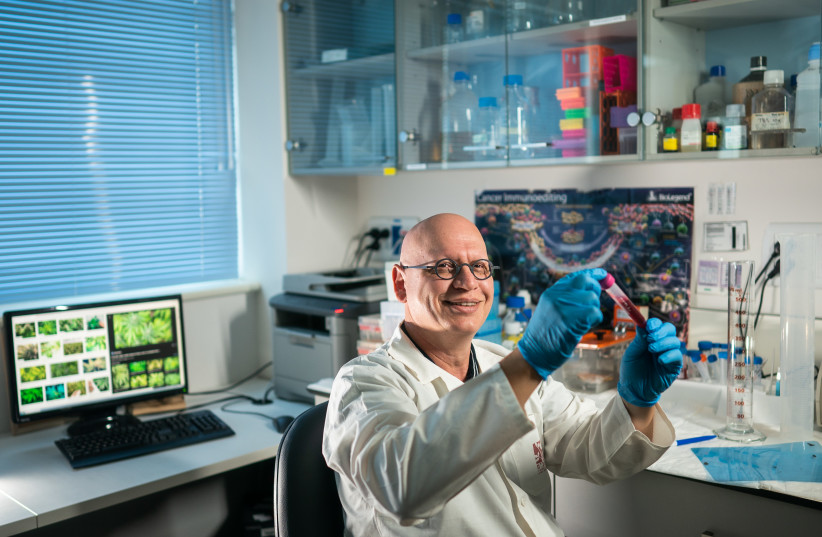With over 100,000 Israeli adults holding Health Ministry licenses for the purchase of medical cannabis to relieve pain and other problems – plus growing recreational use of marijuana – there has been an alarming rise in unintentional cannabis poisoning or intoxication in children, according to the Israel Poison Information Center in Haifa.
“We are seeing between 15 and 20 cases of cannabis poisoning in young children and toddlers every year, with the youngest so far an eight-month-old baby,” according to IPIC director Dr. Yael Luria at Rambam Medical Center. “At this stage, doctors and scientists don’t know the long-term effect of acute marijuana exposure on children.”
Marijuana affects children differently than adults for a number of reasons, Luria said, but one major factor is their weight – and a small amount of marijuana can have a significant effect. The nervous system of a child differs from that of an adult, so the effects of cannabis on the nervous system are also different. “Just as parents must keep cleaning materials, alcohol, batteries and cigarettes out of their children’s reach, they must do the same with cannabis.”
When is cannabis used for medicinal purposes?
Marijuana, derived from the cannabis plant, is a psychoactive drug that affects how the brain works and impacts one’s mood, awareness, thoughts, feelings and behavior. Native to Central and South Asia, the plant is used for recreational and medicinal purposes and, in some cultures, for religious practices. There is also evidence indicating that cannabis can help patients suffering from certain medical conditions such as autism spectrum disorder (ASD) and that it can also alleviate pain, including from cancer.
Israel is the first country in the world to have regularization of medical cannabis for therapeutic purposes – a complex, unique, innovative and original process.

Young children under the age of 12 usually ingest cannabis unintentionally. They mistake “edible” marijuana – like gummy bears, brownies, lollipops and the like – for regular food and eat it. They also sometimes find their parents’ “joints” – cannabis cigarettes – or cannabis oils at home.
Causes and symptoms of cannabis poisoning
Side effects of cannabis poisoning can include lethargy; difficulty walking, balancing, speaking and swallowing; seizures and even loss of consciousness, said Luria. Treating cannabis poisoning may require the child to be hospitalized, but usually, care is given to make them more comfortable until toxicity is eliminated.
When asked about children with ASD being treated with cannabis, Luria said: “That’s a completely different situation; their treatment and dosage is fine-tuned to their specific needs and they are monitored constantly.”
The use of cannabis for recreational purposes is prohibited in most countries, but it has been decriminalized in Canada, Georgia, Malta, Mexico, South Africa, Thailand and Uruguay, plus 19 states, two territories and the District of Columbia in the US and the Australian Capital Territory in Australia. However, cannabis has not yet been decriminalized for recreational use in Israel.
The Israel Poison Information Center, a branch of the Health Ministry, runs a free, round-the-clock phone hotline for inquiries related to poisonings (clinical toxicology), drug information (clinical pharmacology) and the effects of drugs, chemicals and other poisons including cannabis. Its experts give advice on poisonings to the healthcare system and the general public. The center receives an average of 31,000 calls annually – 43% of which relate to children under six years old.
The role of cannabinoids in adults for easing various disease conditions is being studied at Rambam’s Medical Cannabis Research and Innovation Center, led by Dr. Igal Louria-Hayon. It unites clinicians and scientific researchers on a variety of clinical cannabis applications, including cancer, hematology, autoimmune diseases, chronic pain, skin diseases, neurology, gastroenterology and diseases that primarily affect women.
Rambam’s physicians are now treating more than 3,000 patients with cannabis in multiple indications and are leading approximately 30 clinical trials in this field – all of which contribute to its extensive database for medicinal cannabis.
“We are establishing a multidisciplinary network of physicians and researchers who will work on research both independently and in collaboration with pharmaceutical companies,” Louria-Hayon said. “This ensures that the center will be able to provide answers to research questions in the field of cannabis from the cellular level to the level of human experiments.”
